Today’s Current Affairs: 20th February 2025 for UPSC IAS exams, State PSC exams, SSC CGL, State SSC, RRB, Railways, Banking Exam & IBPS, etc
Table of Contents
Navika Sagar Parikrama II: Completed Challenging Phase

The Indian Naval Sailing Vessel (INSV) Tarini entered Port Stanley on 18 Feb 25 thus completing the third and most challenging phase of Navika Sagar Parikrama II.
- Navika Sagar Parikrama II underscores the Indian Navy’s commitment to gender empowerment and maritime excellence.
- It is crewed by two women officers-Lieutenant Commander Dilna K and Lieutenant Commander Roopa A.
- It aims to promote ocean sailing, self-reliance, and India’s rich maritime heritage.
- The historic expedition was flagged off from Goa by the chief of the Naval Staff on October 2, 2024.
- Navika Sagar Parikrama II covering more than 21,600 nautical miles (approx 40,000 km) will unfold in five legs with stop overs at four ports for replenishment and maintenance, as required.
- INSV Tarini is a 56-foot sailing vessel built by M/s Aquarius Shipyard Ltd.
- The vessel has clocked more than 66,000 nautical miles (1,22,223 km) and participated in first edition of Navika Sagar Parikrama in 2017.
- The boat is equipped with advanced navigation, safety and communication equipment.
Caspian Pipeline Consortium:
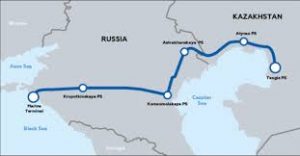
Russia said oil flows through the Caspian Pipeline Consortium (CPC), a major route for supplying Kazakhstan and exporting to the global market, were reduced by 30-40% recently after a Ukrainian drone attack on a pumping station.
- CPC is a $2.6 billion project consisting of a 935-mile crude oil pipeline that runs from the Tengiz oil field in Kazakhstan to the Russian Black Sea port of Novorossiysk.
- Construction on the CPC pipeline began in 1999.
- It was commissioned in 2001, and a $5.1 billion expansion project was completed in 2018.
- It is a key East-West pipeline that will carry oil from the Caspian Sea region to international markets.
- CPC includes the Russian and Kazakh governments, as well as Western energy majors – Chevron, ExxonMobil and Shell.
- This pipeline accounts for two-thirds of Kazakhstan’s oil exports.
- The pipeline’s total capacity is 1.4 million barrels per day of oil. This is 3 percent of global seaborne oil trade.
Biennial Transparency Report:

India is in the final stages of preparing its first ever Biennial Transparency Report (BTR), part of its commitment as a signatory to the 2015 Paris Agreement on climate change.
- The BTR is a report prepared and submitted by Parties to the Paris Agreement under the Enhanced Transparency Framework (ETF) that captures information on their progress in implementing the different aspects of the Agreement.
- The different aspects are covered in the five separate chapters of the BTR, some of which are mandatory and some of which are optional.
- Different chapters and components of the BTR:
- National Inventory Report of GHG Emissions: All Parties – Mandatory
- Progress made in implementing and achieving the NDC: All Parties – Mandatory
- Climate change impacts and adaptation: All Parties – Optional
- All Parties to the Paris Agreement, except for small island developing states (SIDS) and the least developed countries (LDCs), are required to provide country-specific information on the implementation of the Paris Agreement in the form of BTR every two years.
- Recognizing the capacity constraints faced by SIDS and LDCs, and the need to provide flexibility in light of their national circumstances, SIDS and LDCs may submit BTRs at their discretion.
- As the reporting instrument of the Paris Agreement, BTRs help facilitate mutual trust and confidence between countries and allow parties and non-party stakeholders to understand the state of climate action in each country.
Inland water transport terminal:

Union Minister of Ports, Shipping and Waterways inaugurated an Inland Waterways Terminal (IWT) on Brahmaputra in Assam’s Jogighopa.
- The terminal is set to transform the connectivity in the region and bolster our trilateral trade with Bhutan and Bangladesh.
- The foundation stone for the terminal was laid in February, 2021.
- It has been set up at a cost of Rs 82 crore.
- It has the potential to boost trade by reducing transportation expenditure and offering an eco-friendly and alternative mode of transport via the Brahmaputra river.
- By 2027, this terminal is expected to handle cargo of 1 million tonnes per annum.
- Inland Waterways Authority of India is a statutory body established under the Inland Waterways Authority of India Act (IWAI), 1985.
- The Authority primarily undertakes projects for development and maintenance of IWT infrastructure on national waterways through grant received from the Ministry of Ports, Shipping and Waterways.
- It presently has five regional offices in Guwahati (Assam), Patna (Bihar), Kochi (Kerala), Bhubaneswar (Odisha) and Kolkata (West Bengal).
- Headquarter: Noida, Uttar Pradesh.
- Nodal Ministry: Ministry of Ports, Shipping and Waterways.
Peppara Wildlife Sanctuary:

The Periyar Tiger Conservation Foundation has implemented the real-time monitoring and networking system in the Peppara Wildlife Sanctuary under the Thiruvananthapuram Forest Division.
- Peppara Wildlife Sanctuary is located in the Thiruvananthapuram district of Kerala spread over 53 sq km. area.
- It was declared as wildlife sanctuary in 1983.
- The sanctuary constitutes the catchments of peppara dam constructed across the Karamana River.
- The major peaks in the sanctuary are Chemmunjimottai (1717 m) and Athirumalai 1594 m.
- The vazhvanthol waterfall is located nearby it.
- Forest types include tropical evergreen forests, moist mixed deciduous forests and semi-evergreen forest, Myristica swamp forest etc.
- 43 species of mammals, 233 sp. of birds, 46 species of reptiles, 13 species of amphibians and 27 species of fishes are reported from the sanctuary.
- The common mammals found are Tiger, Leopard, Sloth bear, Asian Elephant, Sambars, Barking deer, Lion-tailed macaque, Nilgiri langur, Nilgiri tahr etc.
Soil Health Card Scheme:

The soil health card scheme has completed its decade.
- The soil health card scheme was launched in 2015 to assist State Governments to issue soil health cards to all farmers.
- It provides information to farmers on nutrient status of their soil along with recommendation on appropriate dosage of nutrients to be applied for improving soil health and its fertility.
- It contains status of the soil with respect to 12 parameters, namely N, P, K, S (Macro-nutrients); Zn, Fe, Cu, Mn, Bo (Micro – nutrients); and pH (Acidity or Basicity), EC (Electrical Conductivity) and OC (Organic Carbon).
- Soil samples are taken generally two times in a year, after harvesting of Rabi and Kharif Crop respectively or when there is no standing crop in the field.
- A farmer will get the soil card once in every 3 years.
- Village Level Soil Testing Labs can be set up to provide test results by individual entrepreneurs i.e. rural youth and community based entrepreneurs, including Self Help Groups (SHGs), Schools, Agriculture Universities etc.
- Soil Health Card scheme has been merged in Rashtriya Krishi Vikas Yojana (RKVY) scheme as one of its components under the name ‘Soil Health & Fertility’ from the year 2022-23.
- To streamline the implementation/monitoring of the scheme and to provide easy access to Soil Health Card to the farmers, SHC Mobile App has been built with additional features.
- The scheme monitors the soil of the farmers well and gives them a formatted report. So, they can decide well which crops they should cultivate and which ones they should skip.
- The authorities monitor the soil on a regular basis. One in every 3 years, they provide a report to farmers. So farmers need not worry if the nature of the soil changes due to certain factors. Also, they always have updated data about their soil.
India-Qatar:
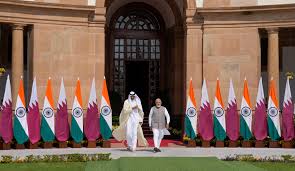
India and Qatar elevated their bilateral relations to a strategic partnership in February focusing on trade, energy, and investments.
- Both nations set a target to double bilateral trade to $30 billion by 2030 and agreed on major economic collaborations.
India-Qatar Summit 2025:
- Energy Cooperation: Qatar Energy and Petronet LNG signed a 20-year deal for LNG supply starting in 2028.
Investment Boost: Qatar Investment Authority pledged $10 billion in Indian infrastructure, startups, and green energy.
Digital & Financial Integration: UPI rollout in Qatar and a revised Double Taxation Avoidance Agreement signed. - Strategic Partnership Agreement: Strengthens ties in trade, investment, security, and innovation.
- Trade Expansion: Commitment to double bilateral trade from $14 billion to $30 billion by 2030
Rarest of Rare Doctrine:

The Kolkata R.G. Kar Medical College case and the Sharon murder case led to contrasting judgments on the death penalty, reigniting debates on the application of the ‘rarest of rare’ doctrine in India.
- The ‘rarest of rare’ doctrine governs the imposition of the death penalty in India.
- It mandates that capital punishment should only be awarded in exceptional cases where the crime shocks the collective conscience of society.
- The doctrine ensures that the death penalty remains the exception rather than the rule, upholding constitutional safeguards.
NAKSHA Project:
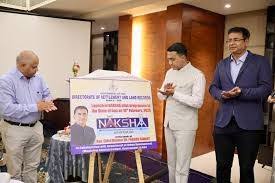
The National Geospatial Knowledge-based Land Survey of Urban Habitations (NAKSHA) pilot project is set to launch in 152 Urban Local Bodies (ULBs) across 26 States and 3 Union Territories (UTs).
- NAKSHA (National Geospatial Knowledge-based Land Survey of Urban Habitations) is a geospatial technology-driven land survey initiative aimed at creating and updating land records in urban areas to ensure transparency, efficiency, and accuracy in property ownership documentation.
- Nodal Ministry: Ministry of Rural Development, Government of India
- Implemented by: Department of Land Resources, in collaboration with Survey of India, and National Informatics Centre Services Inc. (NICSI).
- Aims is to Modernize Urban Land Records: Ensure accurate, updated, and digitalized land ownership records,Facilitate smart city development and infrastructure planning, Minimize property disputes through clear, verifiable records,Establish a Web-GIS-based IT system for land record management.
4th No Money for Terror Conference:

The Union Minister of State for Home Affairs participated in the 4th No Money for Terror (NMFT) Conference in Germany.
- India emphasized global unity in combating terrorism, reiterated its proposal for a permanent NMFT Secretariat at New Delhi.
- No Money for Terror (NMFT) Conference was launched in 2018 by France.
- Previous Conferences: France (Paris, 2018), Australia (2019) and India (2022).
- It aims to enhance international cooperation in curbing terror financing.
Humpback Whale: In News
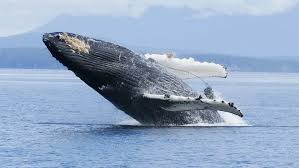
A 23-year-old Venezuelan kayaker, was briefly swallowed by a humpback whale while kayaking in the Strait of Magellan, Chile.The whale mistook the kayak for prey, engulfed Simancas, and released him unharmed within seconds.
- Humpback Whale Scientific Name: Megaptera novaeangliae
- A baleen whale known for its acrobatic breaches, complex songs, and long migrations.
- One of the largest whale species, reaching lengths of 12–16 meters (39–52 feet) and weighing up to 36 metric tons
- IUCN Conservation Status: It is listed as “Vulnerable” on the IUCN Red List..
Vertical Planetary Mixer:

ISRO successfully developed a 10-tonne vertical planetary mixer, the largest solid propellant mixing equipment globally, in collaboration with CMTI, Bengaluru.
- Vertical Planetary Mixer a high-capacity mixing system designed for processing solid propellants used in rocket motors.
- Ensures precise blending of hazardous and sensitive ingredients, crucial for rocket motor efficiency.
- Developed by: Satish Dhawan Space Centre (SDSC), ISRO, in collaboration with Central Manufacturing Technology Institute (CMTI), Bengaluru.
- Part of the ‘Atmanirbhar Bharat’ initiative to enhance indigenous space capabilities.
- It Uses multiple hydrostatic-driven agitators for uniform mixing of solid propellant components.
- Operated remotely via a PLC-based control system with SCADA stations for precision and safety.
- SCADA (Supervisory Control and Data Acquisition) stations are control systems that monitor and manage physical processes in real time.
Kashi Tamil Sangamam 3.0:
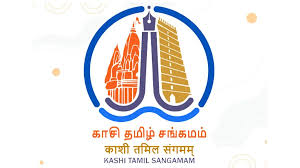
The 3rd edition of Kashi Tamil Sangamam (KTS 3.0), a cultural confluence between Tamil Nadu and Kashi, is being held in Varanasi, Uttar Pradesh.
- Kashi Tamil Sangamam (KTS 3.0) coincides with Mahakumbh 2025 in Prayagraj and provides an opportunity to visit the Ram Mandir in Ayodhya for the first time post-inauguration.
- The 1st edition of KTS was held in 2022, while the 2nd in 2023.
- It features around 1,000 delegates from Tamil Nadu across 5 categories, including students, teachers, writers, farmers, artisans, professionals, entrepreneurs, SHGs, and innovation communities.
- Also, joined by 200 Tamil-origin students from Central Universities, enhancing the event’s diversity and engagement.
- Central Theme: “Legacy of Sage Agastya”.
- Kashi Tamil Sangamam is a cultural initiative that aims to celebrate the deep-rooted historical and cultural ties and strengthen the ancient civilizational bond between Tamil Nadu and Kashi (Varanasi).
- The event aligns with the Ek Bharat Shreshtha Bharat initiative, emphasizing the integration of India’s diverse cultural heritage.
- The historical ties between Kashi (Uttar Pradesh) and Tamil Nadu date back to the 15th century when King Parakrama Pandya of Madurai traveled to Kashi to bring back a sacred lingam for his temple (Sivakasi, Tamil Nadu).
Neotethys Oceanic Plate and Tectonic Movements:
A study has revealed that the ancient Neotethys oceanic plate, which once lay between the Arabian and Eurasian continental tectonic plates, is breaking apart under the Zagros Mountains in West Asia due to plate movement.This impacts regional geography, earthquakes, and resource distribution offering valuable insights into the Earth’s deep tectonic processes.The Neotethys Oceanic Plate was an ancient oceanic plate that once formed the seafloor of the Neotethys Ocean, which existed during the breakup of Pangaea.Over time, it was subducted into the Earth’s mantle beneath the Eurasian continent as the Arabian and Eurasian plates moved closer.
BAFTA Awards 2025:
The 78th BAFTA Awards celebrated the finest achievements in cinema, with Conclave(Conclave won Best Film, Best Adapted Screenplay, Best Editing, and Outstanding British Film.) and The Brutalist emerging as the biggest winners of the night, each securing four awards. The French musical crime drama Emilia Pérez continued its dominance, winning Best Film Not in the English Language, beating Payal Kapadia’s All We Imagine As Light, marking its third major loss to Emilia Pérez this year. Meanwhile, director Brady Corbet (The Brutalist) and lead actor Adrien Brody (The Brutalist) secured top honors. The awards also saw Dune: Part Two winning in technical categories, while Wallace & Gromit: Vengeance Most Fowl took home Best Animated Film.
Reliance Secures 10 GWh Battery Capacity Under PLI Scheme:
Reliance New Energy Battery Limited, a subsidiary of Reliance Industries Limited, has secured a 10 gigawatt-hour (GWh) capacity under the Production Linked Incentive (PLI) Scheme for Advanced Chemistry Cell (ACC) Battery Storage. The Ministry of Heavy Industries (MHI) signed a Programme Agreement with the company on February 17, 2025, marking a major step in India’s push for domestic battery manufacturing and reduced import dependence.
Google unveils ‘Ananta,’ its largest campus in India:
Google has made a significant leap in its commitment to India’s digital landscape by unveiling Ananta, its largest campus in the country. Named after the Sanskrit word meaning “infinite” or “limitless”, Ananta is not just a workplace but a hub of innovation, collaboration, and sustainability. Located in Mahadevapura, Bengaluru, this campus is among Google’s largest in the world, reinforcing India’s role as a key player in global technology and AI advancements.
RSS Inaugurates New Headquarters ‘Keshav Kunj’ in New Delhi:
The Rashtriya Swayamsevak Sangh (RSS) has officially inaugurated its state-of-the-art headquarters, ‘Keshav Kunj,’ in Jhandewalan, New Delhi. The newly built complex, covering a massive five lakh square feet across four acres, is designed to support the organization’s growing activities.The facility includes three high-rise towers, auditoriums, a library, a hospital, a canteen, and a Hanuman temple. Built with a focus on sustainability and modern infrastructure, the headquarters surpasses even the BJP headquarters in size. The project, which cost ₹150 crore, was entirely funded by public donations, reflecting the widespread support for the RSS.
Karnataka Bank Marks 100 Years with New Product Launches:
Karnataka Bank marked its 100th anniversary on February 18, 2024, by unveiling two new financial products aimed at expanding its customer base and strengthening its market presence. The bank introduced a specialized savings account for children and a high-interest term deposit scheme for a limited period. These initiatives reflect Karnataka Bank’s focus on customer-centric banking while celebrating its century-long journey in India’s financial sector.
India’s First Open-Air Art Wall Museum Inaugurated at Mausam Bhawan:
Dr. Jitendra Singh, Union Minister of State (Independent Charge) for Science & Technology, Earth Sciences, and other key departments, inaugurated India’s first “Open Air Art Wall Museum” at Mausam Bhawan, New Delhi. The initiative, developed in collaboration with Delhi Street Art, celebrates 150 years of the India Meteorological Department (IMD) through a vibrant series of murals, depicting its history, technological advancements, and contributions to society. The unique project merges science and art, offering a visually engaging representation of India’s meteorological journey.
India’s smartphone exports:
India’s smartphone exports have reached an all-time high of Rs 1.55 trillion in the April 2024 to January 2025 period, reflecting a 56% surge from Rs 991.2 billion in the same period last year. This growth has been primarily fueled by the Production-Linked Incentive (PLI) scheme, which has strengthened India’s smartphone manufacturing ecosystem and boosted exports. The rise in shipments is being driven by global giants like Apple and Samsung, with Apple leading the way by contributing nearly 70% of the total exports.
Kerala Leads in Scientific Disposal of Expired Medicines:
Kerala is set to become the first state in India to scientifically collect and dispose of expired and unused medicines from households. The Kerala Drugs Control Department will officially launch the ‘nPROUD’ (New Programme for Removal of Unused Drugs) initiative on February 22, 2025. This government-led project aims to tackle the growing issue of pharmaceutical waste, which poses environmental hazards and health risks.
Ajmer Hosts First-Ever All India Transgender Conference:
Ajmer has become the venue for the first-ever All India Kinnar Mahasammelan, a historic 10-day transgender conference held at a private school in Vaishali Nagar. The event, which began on February 17, 2025, with the Khichdi Tulai ritual, is aimed at addressing issues faced by the transgender community across India. The conference is organized in memory of Anita Bai, the mentor of Gaddipati Saloni Nayak, a respected figure in Ajmer’s transgender community.
Zomato Introduces AI-Powered Customer Support Platform ‘Nugget’:
Zomato has introduced ‘Nugget,’ a no-code AI-powered customer support platform designed to help businesses automate and streamline customer service. Developed over three years, the platform currently handles over 15 million monthly interactions across Zomato’s ecosystem, including Blinkit and Hyperpure. This move highlights Zomato’s focus on AI-driven solutions to improve customer experience and operational efficiency.




